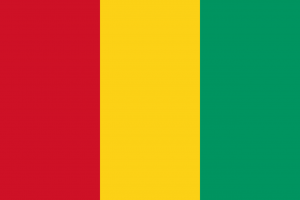Difference between revisions of "Language/Susu/Grammar/Object-Pronouns"
Jump to navigation
Jump to search
(Created page with "The personal subject pronouns play the role of direct objet pronouns. {| class="wikitable" |Number | Pronouns |Objects |- |1st person |Singular <nowiki>------------------------------</nowiki> N |Plural <nowiki>------------------------------</nowiki> Muxu <nowiki>------------------------------</nowiki> Won |- | 2nd person | I | Wo |- | 3rd person | A | E |} Example for the verb kolon = know {| class="wikitable" |I n ko...") |
|||
| Line 1: | Line 1: | ||
<div class="pg_page_title">The Object Pronouns in Susu</div> | |||
[[File:Susu-Language-PolyglotClub.png|thumb]] | |||
Hello Susu learners, | |||
➡ In today's lesson you will learn how to form the Object Pronouns in Susu language. | |||
Happy learning! | |||
The personal subject pronouns play the role of direct objet pronouns. | The personal subject pronouns play the role of direct objet pronouns. | ||
{| class="wikitable" | {| class="wikitable" | ||
Revision as of 16:48, 2 June 2022
The Object Pronouns in Susu
Hello Susu learners,
➡ In today's lesson you will learn how to form the Object Pronouns in Susu language.
Happy learning!
The personal subject pronouns play the role of direct objet pronouns.
| Number | Pronouns | Objects |
| 1st person | Singular
------------------------------
|
Plural
------------------------------ Muxu ------------------------------ Won |
|
|
|
|
|
|
|
|
Example for the verb kolon = know
| I n kolon? | Do you know me? |
| I a kolon ? | Do you know him? |
| N i kolon ? | Do I know you? |
| Muxu a kolon | We know him |
| Won e kolon | We know them |
| Wo n kolon | You (pl.) know me |
| E i kolon | They know you |
